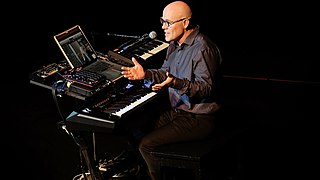A Quote by Jaron Lanier
Back in the 1980s, when the internet was only available to a small number of pioneers, I was often confronted by people who feared that the strange technologies I was working on, like virtual reality, might unleash the demons of human nature. For instance, would people become addicted to virtual reality as if it were a drug? Would they become trapped in it, unable to escape back to the physical world where the rest of us live? Some of the questions were silly, and others were prescient.
Quote Topics
Addicted
Available
Back
Become
Confronted
Demons
Drug
Escape
Feared
Human
Human Nature
Instance
Internet
Like
Live
Might
Nature
Number
Often
Only
Others
People
Physical
Physical World
Pioneers
Questions
Reality
Rest
Silly
Small
Some
Strange
Technologies
Trapped
Unable
Unleash
Us
Virtual
Virtual Reality
Were
Working
World
Would
Related Quotes
If you're having a very high-adrenaline, high-movement experience in virtual reality, and then all of a sudden you're back in your office, that disconnect is pretty notable. Whereas if you're using it for virtual reality teleconferencing... there's really no kind of impact moving back and forth between the real and the virtual world.
Let's stick to the practical and the concrete: Would you like it if people lived in a virtual world? If machines were smarter than people? If, in the future, people, animals and plants were products of technology? If you don't like these ideas, then for you the computer and biological sciences clearly are dangerous.
Commentators frequently blame MMORPGs for an increasing sense of isolation modern life. But virtual worlds are less a cause of that isolation than a response to it. Virtual worlds give back what has been scooped out of modern life. The virtual world is in important ways more authentically human than the real world. It gives us back community, a feeling of competence, and a sense of being an important person whom people depend on.
The simulator is the stage in-between television and virtual reality, a moment, a phase. The simulator is a moment that leads to cyberspace, that is to say, to the process because of which we now have two bottles instead of one. I might not see this virtual bottle, but I can feel it. It is settled within reality. This explains why the word virtual reality is more important than the word cyberspace, which is more poetic.
The early entrants into the world of A.R., as with its cousin virtual reality, were disappointing: the phones were too weak, the networks were too slow, and the applications were too nerdy. But now the technological pieces are in place, and a whole generation - much of which is on Snapchat - has come to consider the camera almost a third arm.




































